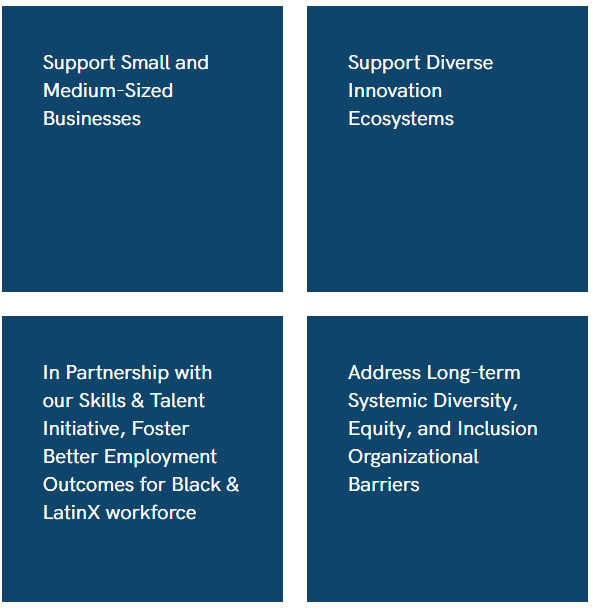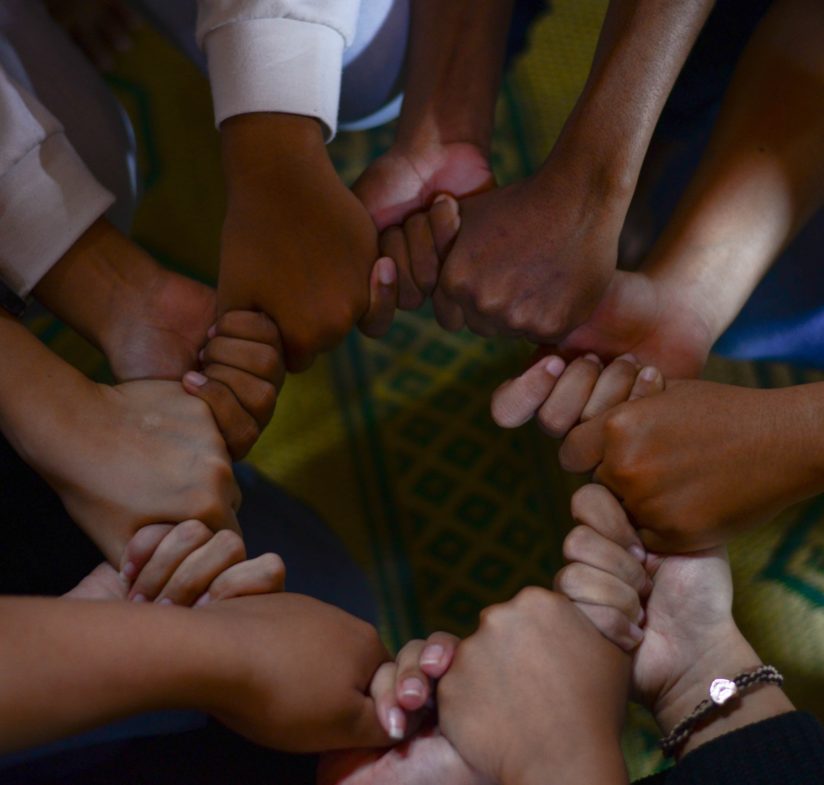2020 was a year of unprecedented challenge. We were reminded of our collective humanity and were forced to wade in uncomfortable and unchartered territory together.
We faced unprecedented disruptions to our ways of life, political systems, institutions, and businesses. The pandemic laid bare our country’s systemic racial inequities with our Black and LatinX communities shouldering the virus’s health and economic impacts disproportionately. For many individuals and organizations alike, this meant reflecting on our identity and role in society, protesting injustice, and redoubling our commitments to promote racial equity.
I am optimistic that we can translate our heightened awareness into meaningful action in 2021. The seismic challenges before us present an opportunity to do things differently. The events at the Capitol last week underscore the dire need for a new path forward.
We have the opportunity to promote more equitable approaches to economic development, ensuring all members of society can thrive, irrespective of their race, gender, or zip code. This type of inclusive development requires a concerted and collaborative strategy to channel efforts and resources to all sectors of the population, with a particular emphasis on historically underserved communities beset by chronic underinvestment.
Make no mistake: inclusive growth is both a moral imperative and an economic one. Cities that have prioritized inclusivity – like Santa Clara, CA, and Bellevue, WA – have achieved longer-term growth by becoming a magnet for talent, business, and investment. In fact, data shows that cities that emphasize racial and ethnic inclusion in their economic development plans promote a better economic future for everyone[i]. By McKinsey’s estimates, closing the wealth gap between Black and White Americans would unlock up to $1.5T in new potential value by 2028, nearly the equivalent of the GDP of South Korea[ii].
Our region is no exception. The Capital Region’s wealth gap leaves significant economic value on the table; the average annual median income gap between white and Black households is $43k. Further, white children with parents in the bottom quartile are 2.5x more likely to move into the top 20% of earners than their Black peers[iii].
Inclusion is integral to growth and it represents an opportunity to kickstart the region’s economy as we navigate the long road of recovery from COVID-19. By focusing on inclusive growth, our region can identify and nurture new sources of talent, create a more sustainable and resilient economy, and mitigate the stifling impacts of inequality and the twin crises of insufficient and unaffordable housing.
The Greater Washington Partnership recognizes the role that the business community can take to create economic opportunity and has made inclusive growth a strategic priority. Moving forward, our work will focus on four pillars of inclusive growth:

The Capital Region is poised to be the nation’s leading economic engine of inclusive growth and shared prosperity. We have the raw ingredients – rich diversity, cultural vibrancy, a robust business ecosystem, an educated population, and renowned higher education institutions – as well as committed leaders across the business, civic, academic, and public sectors that can tie these pieces together to create a flourishing region of the future that we all aspire to call home.
With a renewed sense of urgency to address entrenched racial and economic divisions, a new and historically diverse Biden Administration, and glimmers of light at the end of the pandemic tunnel, 2021 ushers in a year of opportunity.
Together, we can make good on the promise of a better tomorrow. It’s time to roll up our sleeves and make this new year’s resolution a reality. Be bold and join us on this journey.
Learn more about our inclusive growth efforts.
Francesca Ioffreda
Vice President, Inclusive Growth
[i] https://www.urban.org/research/publication/inclusive-recovery-us-cities/view/full_report; https://www.bloomberg.com/news/articles/2018-04-25/is-your-city-inclusive
[ii] https://www.mckinsey.com/industries/public-and-social-sector/our-insights/the-economic-impact-of-closing-the-racial-wealth-gap
[iii] McKinsey analysis performed for Greater Washington Partnership in October 2020

